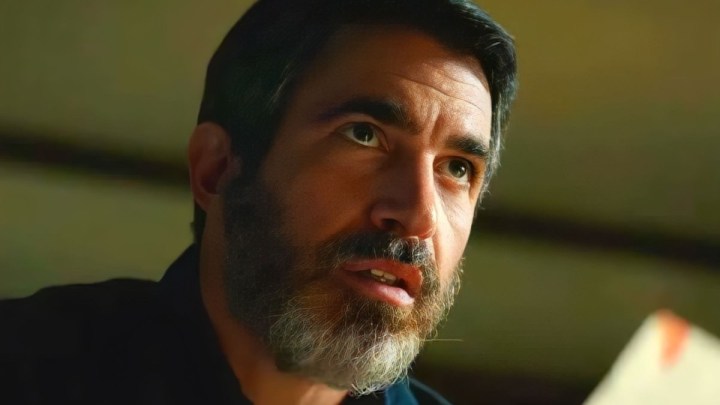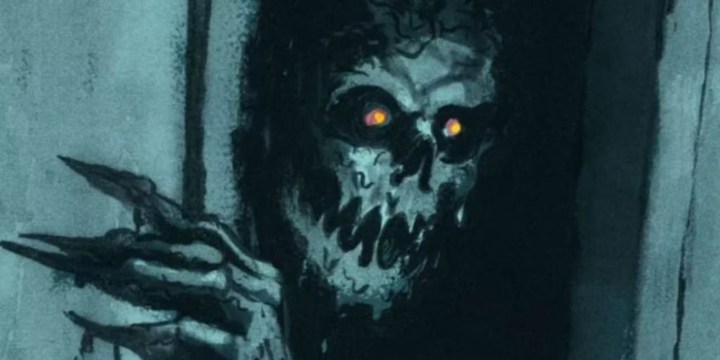The Boogeyman is the latest movie based on the oeuvre of Stephen King. Arguably the most important writer of the 20th century, King is a source of never-ending material for Hollywood, and the notoriously gluttonous town keeps churning movies out of every piece of writing King has ever done. But with most of his major novels and novellas already adapted and remade, Hollywood is turning to his short stories for inspiration.
For The Boogeyman, director Rob Savage uses King’s 1973 short story as inspiration. The source material is brief but effective, presenting a well-told and chilling tale of parental doubt and fear disguised as a classic monster story. The adaptation seems to have changed several key aspects — including the protagonist, the setting, and the core themes. However, it’s understandable, especially because the source material is less than 10 pages long and revolves only around two characters. So, changing things to better fit the film medium is likely for the best. And King, master of horror as he may be, is also guilty of going overboard with his premises, especially if given the space to do so, potentially making his short stories better source material for the big-screen treatment than his books.
Note: This article contains spoilers for the Stephen King short story The Boogeyman.
Man and monster

A King story is all King, beginning to end; there is no middle ground. Adapting a King novel involves either staying true to the source material, thus delivering an over-the-top movie where everything is kicked up to an 11, or toning down things and risking veering too far from his intentions. It’s no wonder the best movies based on King’s works are the ones that change a lot from the novels that inspired them. Because while King works excellently on paper, his imagery wouldn’t necessarily translate to the big screen.
A key to appreciating King and his vibe is understanding his sensibilities. King loves horror’s inherent camp. Where others see schlock, King sees value; where others see trash, he sees gold. His novels embrace and celebrate the cheaper aspects of horror, something not all film adaptations do. It’s easy for King to explore this sensibility in 800 pages or more, but a short story finds him at his most concise and restrained, operating under a set of defined and somewhat restrictive rules that prevent him from going overboard.

The Boogeyman is a great example. King’s narrative revolves around two characters — Lester Billings, a tortured man recalling the “accidental” deaths of his three children, and Dr. Harper, the therapist listening to his tale. The titular monster also plays a prominent part, but only through Lester’s words. Much like in real life, the Boogeyman is an idea in Lester’s head, the monster in the closet that haunts his memories and dreams. Operating under the short story’s format, King lets the reader’s mind do all the heavy lifting; he plants the seeds, but the reader grows the plant.
Compared to, say, It or Christine, where the monsters have plenty of time to wreak havoc on the protagonists, The Boogeyman and most of King’s short stories are all about the horrors we inflict upon ourselves. King famously said, “Monsters are real. They live inside us, and sometimes they win.” That’s the premise behind The Boogeyman, 1408, Cat’s Eye, and Sometimes They Come Back. Short stories are where King presents a condensed version of himself, a palatable alternative for people who wouldn’t stand him as his full power. And because they’re basically a premise rather than a full-fledged story, they also tend to make for the best King adaptations.
King’s short stories allow more room to explore … and terrify

What is a short story but a teaser of something bigger? A short story always leaves audiences wanting more. It’s not necessarily a promise — part of what makes them fascinating is the idea that there’s more about them that readers will never know. Short stories can present a complete narrative with a clear beginning and end, but there’s always something lurking after the final dot.
King’s short stories are as striking as his novels and novellas, albeit much less brutal. However, the tension is arguably better, and the stakes higher. Take The Boogeyman, which ends with Lester expressing regret over his children’s deaths. Leaving Dr. Harper’s office, he returns only to discover that the Boogeyman is real and has been posing as the psychologist all along. The conclusion is chilling and abrupt, which only increases its impact on the reader.

Yet, there’s no payoff to the story; we don’t know if the Boogeyman kills Lester or lets him live, content with the psychological torture the man already endures. Like the Boogeyman, who leaves the closet door ajar after each kill to vaguely hint at its presence, King leaves his short stories with an apparent ending that’s less of a full stop and more of a pause. The closet door is still open, although barely.
Short stories’ inconclusive state allows film adaptations to be more experimental. Take 1408, with John Cusack and Samuel L. Jackson, for example. It is an excellent adaptation of King’s creepy tale. Utilizing its premise to the fullest, the film fully explores the themes King only hints at in his limited writing, presenting a disquieting exploration into people’s minds and the memories that haunt them.
The same is true for Sometimes They Come Back, the 1991 TV movie based on King’s 1974 short story. It ends with a decidedly happier ending that probably made King cringe, but the film is still faithful to the short story, respecting its main themes, if not its bleak resolution.
In Stephen King’s world, less is more
The best Stephen King adaptations in film and TV are the ones that successfully translate his words into the cinematic medium without sacrificing their intent or essence. Nearly every King short story adapted into film does that, gaining something that wasn’t on paper, thus enriching the original narrative. Whether it’s more insight into the character’s tortured psyche or simply more time spent with them in their chaotic, dreadful world, these films provide things readers didn’t necessarily know they needed before watching the movies. King’s short stories become good and even great films, which is impressive considering how hard it is to adapt his novels and novellas into satisfying projects.
Time will tell if The Boogeyman has what it takes to join the upper tier of King movie adaptations. The genre is better than ever, and 2023 is stacked with promising horror flicks. However, there’s always a market for a good horror film, especially if Stephen King’s name is attached. The Boogeyman has everything it needs to succeed, and considering how successful horror movies have been in the last couple of years, it probably will.



